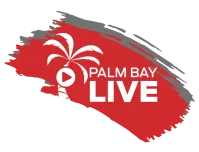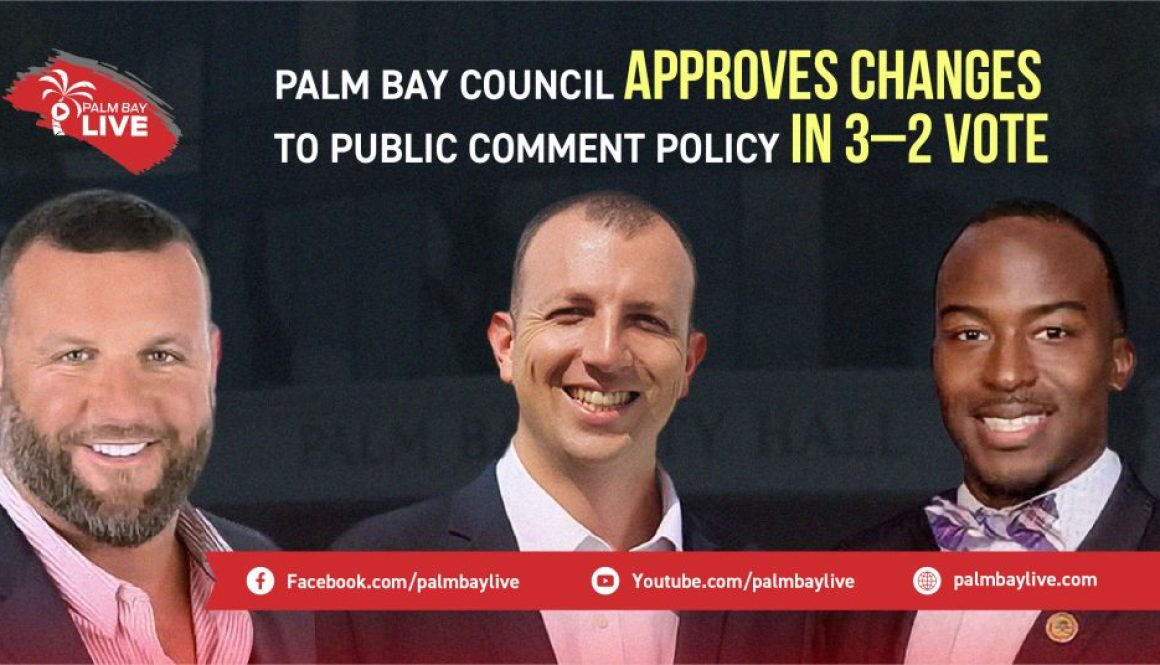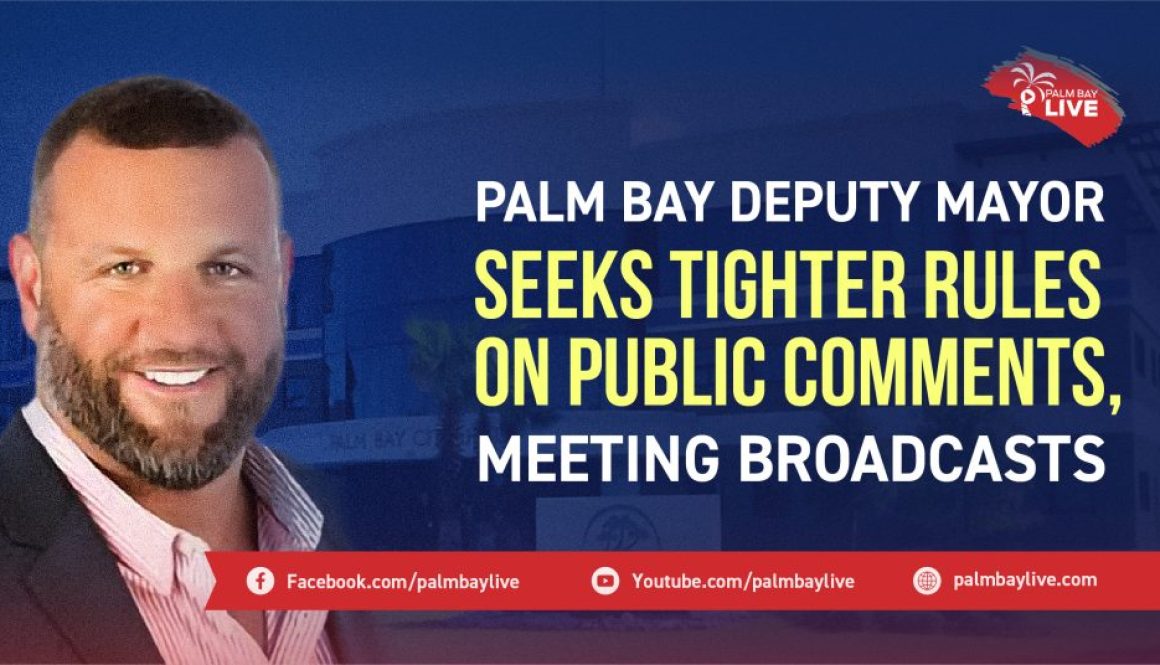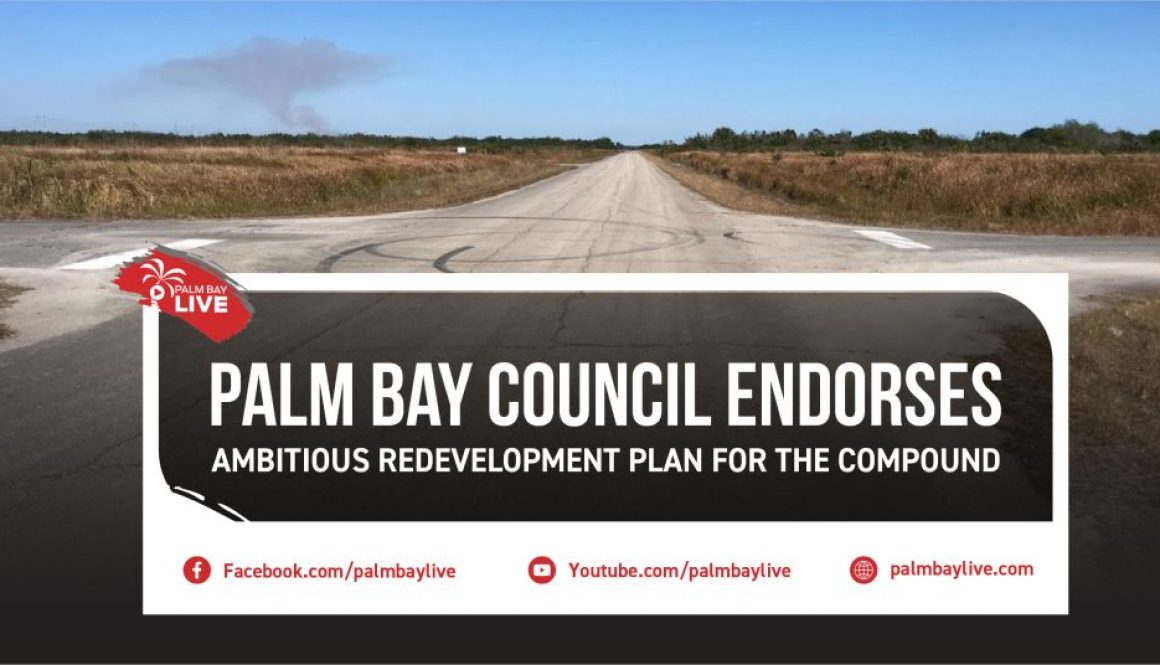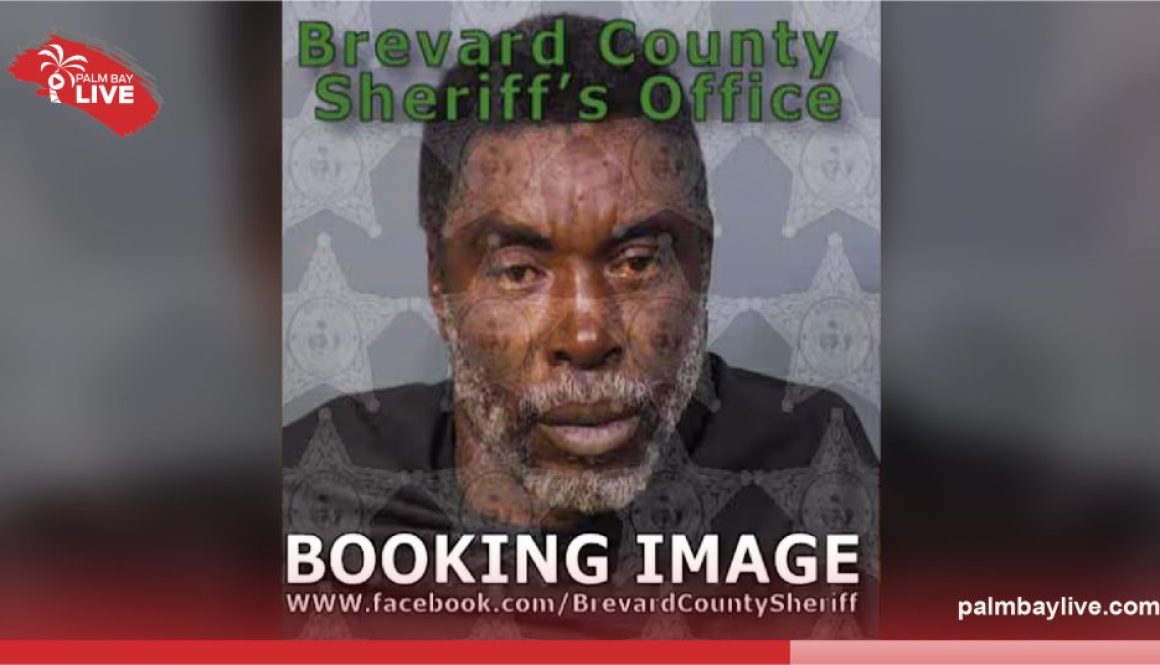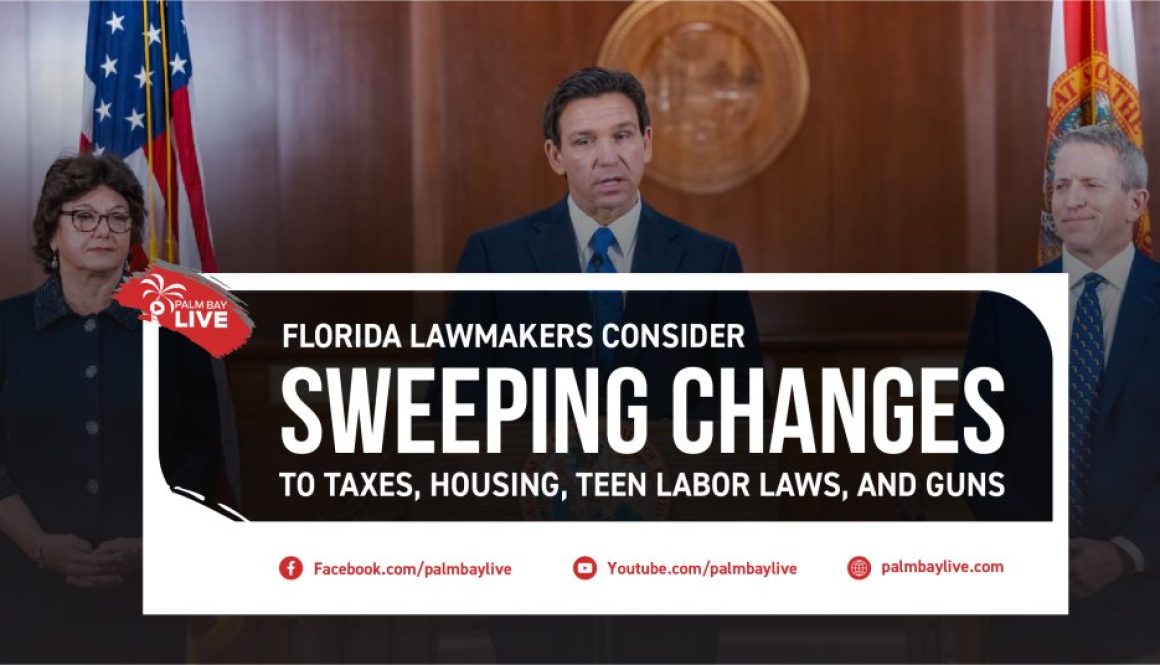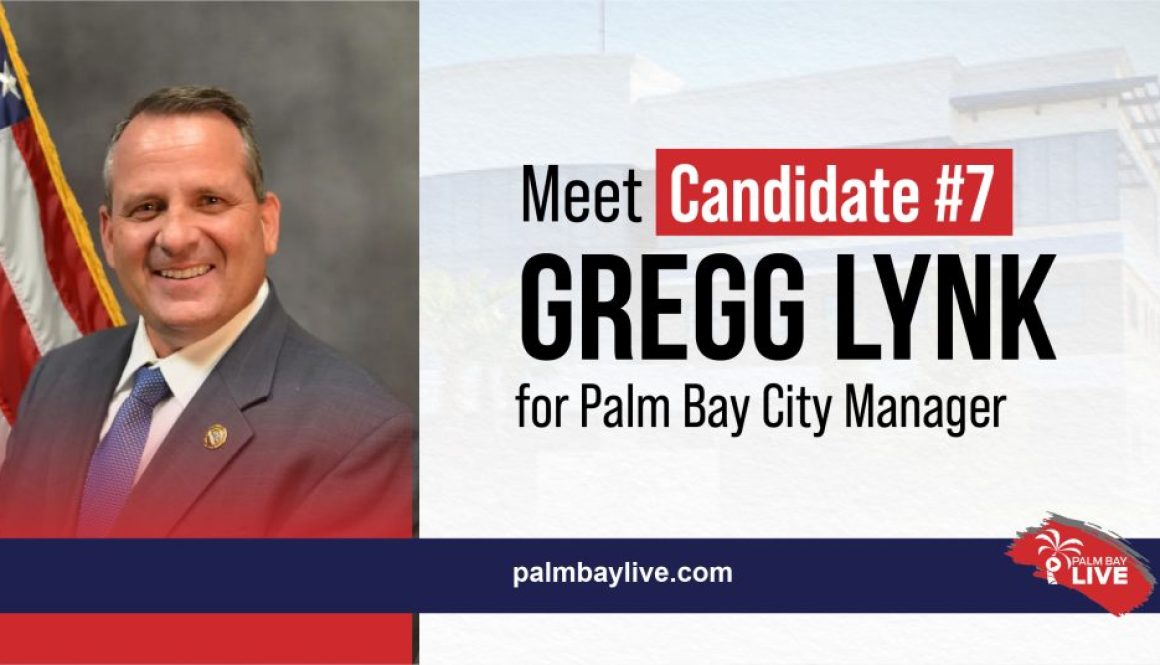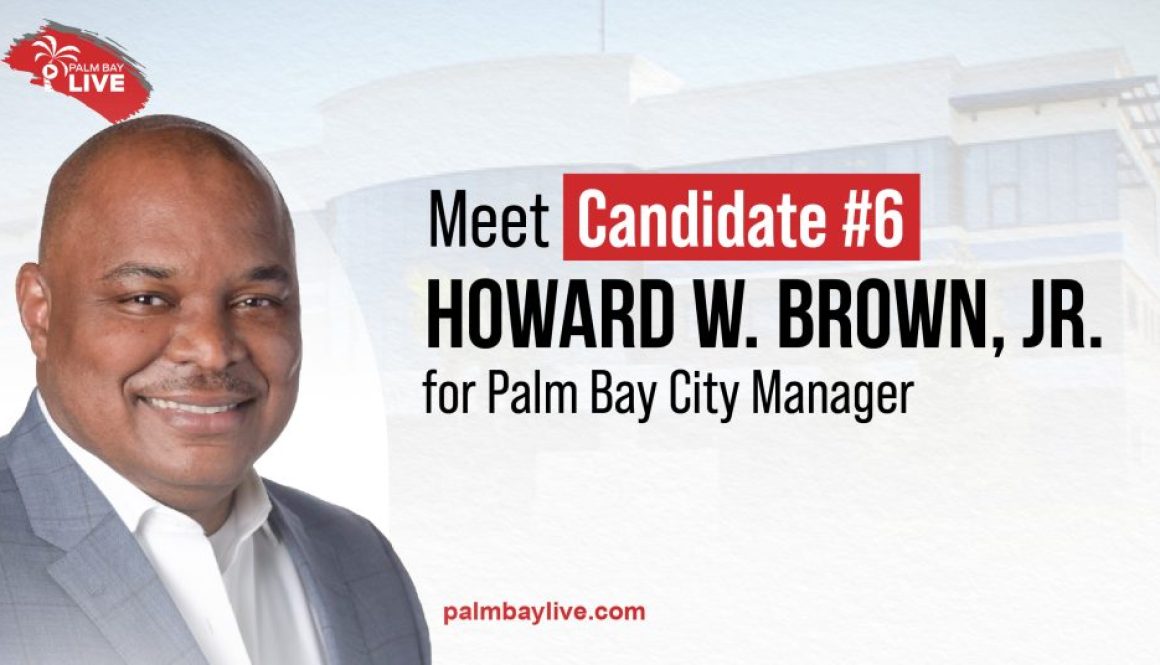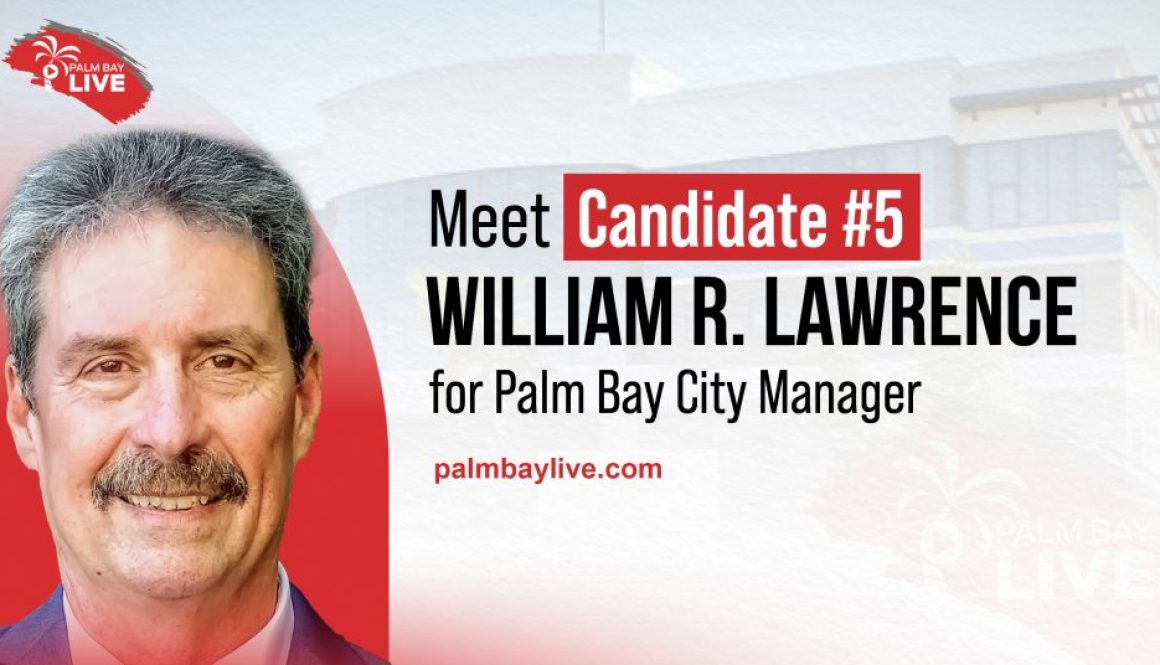Palm Bay Council Approves Changes to Public Comment Policy in 3–2 Vote
Palm Bay City Council narrowly passed a revised set of policies on public comments and meeting procedures at Thursday’s meeting, voting 3–2 in favor of a proposal introduced by Deputy Mayor Mike Jaffe. The motion limits livestream coverage of public comments and tightens rules around visual presentations during council meetings, prompting fierce backlash from several residents who warned the move could infringe on free speech.
The approved measure, which Jaffe described as a “reduction” of the original policy overhaul he initially floated, amends section 8 of the council’s procedures and removes livestreaming for the non-agenda public comment portion of meetings. “There’s no law that requires us to provide any visual anything,” Jaffe said, defending the 48-hour submission window for public presentations as necessary due to “limited staff resources.”
The change follows concerns over past use of obscene language and potentially unfiltered visual material during council meetings, which are broadcast live on government-access television and online platforms. Jaffe and others cited potential Federal Communications Commission (FCC) violations and instances of HIPAA-protected information being shared as justification for the restrictions.
However, critics argued the proposed revisions would effectively stifle dissent. “Every time this council wants to streamline meetings, it’s at the cost of citizens’ rights to speak,” said one resident. He warned that vague language in the policy could allow presiding officers to selectively silence criticism under the guise of maintaining order.
Another speaker cited specific policy sections to argue that citizens were already being deprived of rights guaranteed in the council’s own rules. “Where’s my redress?” he asked, referring to the lack of options to revise or resubmit rejected visual materials.
Councilman Johnson expressed discomfort with the current policy draft and said he supported removing the 48-hour visual submission requirement. “There’s been times where people have put my face up there… that’s what it is. We signed up for it,” Johnson said, acknowledging the cost of public office but advocating for openness.
Councilman Langevin pushed back against limiting speaking time for councilmembers. “We are the council. This is the council meeting. We’re here to discuss important issues,” he said, rejecting a proposed three-minute speaking cap for councilmembers.
In the end, Jaffe made a motion to approve only section 8 of the proposed revisions and to limit livestreaming for non-agenda public comments. The motion passed 3–2, with Jaffe, Langevin, and Johnson in favor, and Medina and Hammer opposed.
Watch the meeting on our YouTube channel:https://youtube.com/live/nCPZWcYZnyw?feature=share
